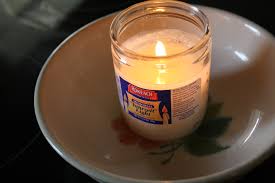
?According to the fifth chapter in Pirkei Avos, I am now between “a ripe old age” and “showing strength.” May G-d please continue to bestow His blessings upon me, my wife, our children, and grandchildren.
We live our lives in uncharted
territory. Each stage brings new opportunities and challenges. The famous words
from “Fiddler on the Roof” come to mind:
Sunrise,
sunset…Swiftly go the years
One
season following another, laden with happiness and tears
Is
this the little girl I carried? Is this the little boy at play?
I
don’t remember growing older; when did they?”
At this stage of my life I am so
grateful for what I have – and what I don’t have! As the Yomim Nora’im (Rosh Hashana, Yom Kippur, and Sukkos) are upon us
once again, I’m taking stock of the years and the tears – the struggles, the
triumphs, and the defeats – all the while keeping in mind the many blessed
simchas and joyful celebrations that I’m so grateful and privileged to have
participated in. I am mindful of the precious neshamas of treasured relatives and friends who, during the past
year, have transitioned to the Olam Ha’emess
(the next world). I miss those special individuals. Some were my age, some
were older, and too many were younger than me.
During Elul 24 years ago, I was
sitting with my father-in-law, Sam Axelrod, z”l,
in a hotel lobby in Yerushalayim. It was in the wee hours of the morning
following the wedding of our youngest son Michoel. Sam, who was in his mid-80s,
was tired and pensive, but his mood was joyful. In a soft, deliberate voice he
said, “Over the years, I’ve heard people brag about their yichus (lineage). Truthfully, I have no idea about my ancestral yichus. I don’t know if I’m descended
from rabbis or farmers. My parents died when I was young, and I never
researched the matter. Nevertheless, I am convinced that my yichus will come from my children and
grandchildren, many of whom are rabbis and scholars.”
* * *
Starting with Selichos and continuing through Yom Kippur, we recite the Shema Koleinu prayer. That prayer is
meant to focus us on our spiritual selves in relation to our Creator. I recall
as a young child sitting on a hard wooden bench next to my grandpa Imber, z”l, my mom’s dad, on Rosh Hashanah. We
were at Mishkan Israel, located in Baltimore City on Madison Avenue just up
from North Avenue. At the time, I knew the Shema,
so when I heard the chazan say the word “Shema,”
I was ready to proudly demonstrate my davening skills. Unfortunately, it was
not the Shema I knew. It was
completely different. The ark was open. The men were all standing. They all
looked very serious; their eyes were closed, and some had tears running down
their cheeks. I had seldom witnessed grown men crying. I said to my grandpa, “Why
are people crying?” He said, “Because they are thinking about getting old, and
they are worried about who will take care of them so they are asking for G-d’s
help.”
“Do not cast us away in old age;
when our strength gives out don’t forsake us.” It’s amazing that certain
memories from our very early years leave indelible imprints upon us.
* *
*
My wife Arleeta just returned from
25 days in Israel. Due to the Covid reality, she hadn’t seen our children and
grandchildren (and, b”H,
great-grandchildren) for two years. I had been fortunate to be there in early
February 2020, two weeks before the Wuhan virus turned the world upside down.
Upon Arleeta’s return home, she opened her suitcase, which was 40% filled with
her personal items and 60% filled with “treasures” that our Israeli
grandchildren gave her. Some items were painstakingly crafted by the youngest
children. Others were purchased at the shekel store (like our dollar stores) from
funds received from gifts from Grandma. Arleeta had carefully folded the beautiful
Baruch Haba welcoming signs which had
been strung above the strollers and bikes in the hallway outside of the Lerner
apartment. Among the many treasures Arleeta brought back was a note from nine-year-old
Chevy (Batsheva) together with special, shekel store earrings. The note,
written exactingly in English (by this young Hebrew speaker), simply said, “To
the best grandma in the whole world – I love you so much.” Although Arleeta has
some expensive earrings, the ones from Chevy are now treasured precious
jewelry!
My dad passed away in 2006 and my
mom in 2019. I’m an only child. So the task of clearing out my mom’s apartment
fell upon me, with Arleeta’s huge assistance. Clearing out your parent’s things
after they are gone is quite an emotionally profound experience. It seemed that
my mom saved every card, every small gift, and every note from me, my wife, and
our children and grandchildren.
There was a note from my third grade
Hebrew teacher, Mr. Meir Steinharter, z”l,
telling my mom that I was a lovely boy, and if I would spend a bit more time on
after-school studying, I would be a top student. I never became a top student,
but Mr. Steinharter’s love and encouragement made me want to do better. Another
letter, which was crunched inside an old machberes
(notebook) was from my sixth grade Hebrew teacher, Mr. Soloman Manischewitz, z”l. He explained that, while he was
happy that I made a bracha before
eating a snack, I should not be consuming snacks during class. It’s interesting
that, 44 years after Mr. Manischewitz’s letter was received by my mom, my son
Doniel (Rabbi Dr. Daniel), Mr. Manischewitz, and I connected at Beth Tfiloh. He
was beyond overjoyed. He said “I’m in my mid-nineties. I spent my life as a mechanech (educator). Knowing that my
pupil and his sons became rabbanim fills me with joy; you are my nachas.” We hugged, we laughed, we
reminisced, and we cried.
* * *
In Iyov (Job 12:12) we read, “In the
aged is wisdom, and in their length of days understanding.” In Melachim Alef
(Kings I 12:6) we read “King Rehoboam took council with the elders who had
stood before his father [King] Solomon while he was alive.” In Vayikra
(Leviticus 19:32) we read, “In the presence of an old person you shall rise.”
Just as the Bnei Yisrael did not fully appreciate who Miriam was until her
death – when their water dried up – so it is that, often, our parents are not
fully appreciated until they’re gone. Mark Twain’s famous statement is
absolutely profound, “My father was an amazing man. The older I got the smarter
he got.”
My parents and my in-laws grew up
poor in material possessions but rich in values. They treasured their family
and friends. Like my Israeli grandkids, their “less” was actually “more.” They
learned from toddler-hood to care and share. They understood that nothing
happens unless you make it happen. They transmitted their values to their
children. They rejoiced in simple pleasures. A year before his passing, my
father-in-law said, “I am so fortunate that all of my children and their
families get along so well. Too often I’ve seen families torn apart over
relatively small differences of opinion. Thank G-d we have peace and good will
in our family. It’s truly a blessing.”
On Yom Kippur and Sukkos, we will
recite Yizkor. It is a time to remember and an opportunity to consider how we
might want to be remembered. In this world we are judged by our reputations; in
the next world we are judged by our character.
* * *
My shul in South Africa had a feisty
old Lithuanian shammes. His name was
Aaron Wasserman, z”l. With his accent,
he called himself Vashermahn. Everyone called him Vassie for short. Vassie was
up in years. A few days before my first Rosh Hashanah in Capetown, I came into
the main shul, where I saw Vassie struggling to carry a heavy Sefer Torah to the
bimah in order to change the mantle (cover) and replace it with a
white one for the High Holidays. There were 18 scrolls in the ark. The process
was taxing and time consuming.
I said “Vassie, let me give you a
hand.” He quickly replied, “No rebbe, dis is mine job.” I tried to explain why
it would be good for me to assist him. He then said, “Rebbe, I was the oldest
in my family back in Vilna before the war. At Rosh Hashanah time, my parents
somehow managed to find, borrow, or buy some new white shirts and blouses for
me and my younger brothers and sisters. We were all so excited. Since I was the
oldest, I would help dress the younger children. During the war I somehow
escaped death. My family wasn’t so fortunate. They all perished. When I prepare
the Sifrei Torah for Rosh Hashanah, I remember each brother and sister. When I
“dress” each Torah and pull the white cover over the scroll, I say “Lezeicher nishmas” (in memory of the soul of)…and then I cry out the name of
each sibling who died. This is part of my Yizkor for my family.”
Jews worldwide recite Yizkor twice
during Tishrei. The custom in most communities is that those who are fortunate
to have their parents alive exit the shul. Orphans remain. I was always
bothered by the fact that Yizkor time (for those blessed to have their parents)
seemed to be a shmoozy, chatty, recess period in the middle of davening, while
the rest of the community was engaged in solemn memorial prayers. One year I
decided to offer a short 12 minute shiur in
our beis medrash, entitled “Honor Thy Father and Mother,” to be
taught by my young assistant rabbi. Amazingly, 75 percent of the “recess” crowd
attended. The purpose, on the holiest day of the year, was to remember our
living parents and our responsibility to properly honor them while we still
can!
* * *
We are (seemingly) privileged to be
living in a world of timesaving devices, yet hardly anyone has any time. The
more devices, the less time! One of my congregants, a businesswoman in her late
thirties had an elderly father living in Johannesburg in a geriatric facility.
He phoned her and left a jolting voice message. He said, “Rebecca, I would like
to negotiate a great deal for you. I’m releasing you from the burden of sitting
shiva for me. In return, all I ask is
that you come up and visit me now for a few days while I can still enjoy being
with my precious daughter.” Rebecca got the message!
Rabbi Dr. Abraham Twerski, zt”l, had a favorite Peanuts cartoon. It
featured a touching scene with Snoopy and his pal Woodstock sitting in front of
a fireplace. The caption reads, “Enjoy the little things in life because, one
day, you’ll look back and realize they were the big things.”
For those of us who will be reciting
Yizkor, may we be blessed to remember the good times and sweet memories of
years gone by. May we be thankful and grateful for all of G-d’s blessings! May
our deeds honor those for whom we recite the Hazkaras (memorial prayers).
May HaShem bless and keep all of us
for a year of good health, peace, wellbeing, and parnassa tova. Leshana
Tova!






